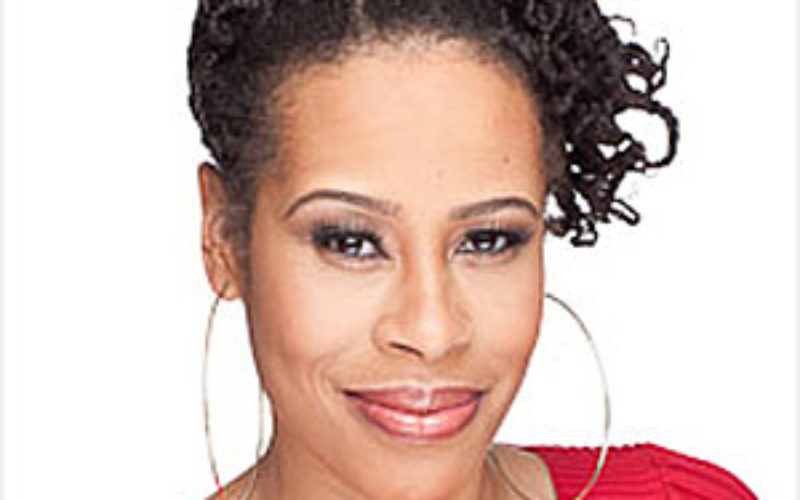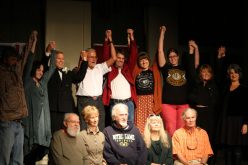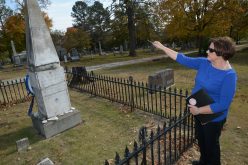Hopeless situation gives hopeful voice to actors
LARA JO HIGHTOWER
lhightower@nwadg.com
Diversity, notes Kimille Howard, director of TheatreSquared’s production of Dominique Morisseau’s “Skeleton Crew,” can be hard to find in regional theater, especially in the heartland of America.
“I think it’s just really nice that plays by playwrights like Dominique are getting produced regionally, because there was a time — and it’s still happening in a lot of regional theaters — when August Wilson was the only black voice getting produced regionally,” says Howard. The show, part of what the Detroit-born Morisseau calls her “Detroit Trilogy,” is a snapshot of the lives of four African-American employees in an automobile plant in danger of closing in 2008. “I just really hope that theaters across the country start to open their horizons to consider other black playwrights and other black perspectives,” says Howard, “because the ‘poor black play’ is a very popular theme, but we have a multitude of experiences: We come of age. We fall in love. We go on adventures. We have self-discovery, just like anybody else — and we deserve to have that represented on stage, too.” A wider representation of the black experience in regional theater throughout Middle America, she says, will help to “counter those negative stigmas that tend to be perpetuated by the media. Like, ‘Look, we are this, too. You may not see us in your neighborhood, but we are this, too.’”

Courtesy photo
Anton Floyd, Cherene Snow, DeAnna Supplee and Broderick Clavery, clockwise from top left, star in T2’s production of “Skeleton Crew,” a play the New York Times called “a deeply moral and deeply American play, with a loving compassion for those trapped in a system that makes sins, spiritual or societal, and self-betrayal almost inevitable.”
The action in “Skeleton Crew” is contained completely in the dim break room of the automobile plant and is centered on four longtime employees as they grapple with the stress of not knowing what tomorrow might bring. “‘Skeleton Crew’ is about what happens to people for whom survival becomes the foremost (if not the only) goal in life,” reviewer Ben Brantley wrote in the New York Times of its off-Broadway debut.
Actor Deanna Supplee, who plays Shanita, says that she was immediately drawn to Morisseau’s script because the characters were so relatable and the dialogue so natural.
“[Dominique] really has an ear for, I wouldn’t say millennial, but for just modern-day young people in the grind, in the struggle, and you can’t help but empathize with her words,” she says. “[Her language] is so natural, at least for my tongue, and, I think, for most young actors. It’s the people you grew up with, grew up talking to. You don’t have to don anything. The quick back and forth, the banter, that’s how I talk to my friends.”
For Anton Floyd, this will be the second time he’s performed in the show: He played Reggie in the Actors Theatre of Louisville production last year.
“I thought, ‘I want to do this again — I have to do it one more time. I’ve got some more,’” he remembers. “I was just blown away by it. Reggie is put in a situation where, as he says, he’s walking a line — ‘I’ve got to take care of my family in the company, and I have to figure out how to take care of my family at home.’”
The characters might be facing a bleak future, but the trio of actors and their director point out that it ends optimistically — and gives voice to a cross-section of the country that might have lacked one in the past.
“Dominque talked about those who voted for our current leader — they were the disenfranchised working class,” says Howard of a phone conversation the cast and crew had with the playwright on the first day of rehearsals. “The face of that is white, but there’s a black side to that, and the characters in this play are the black working class that are left out of that conversation. One of the things that she said was, ‘Welcome to the revolution.’ I loved that we get a voice in the conversation.”
“There’s definitely hope in this play,” says Supplee. “As disenfranchised as it feels, or as hopeless as it feels, I think our characters show that it doesn’t have to be this way. There is a light out there.”
__
FAQ
‘Skeleton Crew’
WHEN — 7:30 p.m. Tuesday-Saturday & 2 p.m. Sunday through Nov. 4
WHERE — TheatreSquared, 505 W. Spring St. in Fayetteville
COST — $36-$47
INFO — 443-5600










